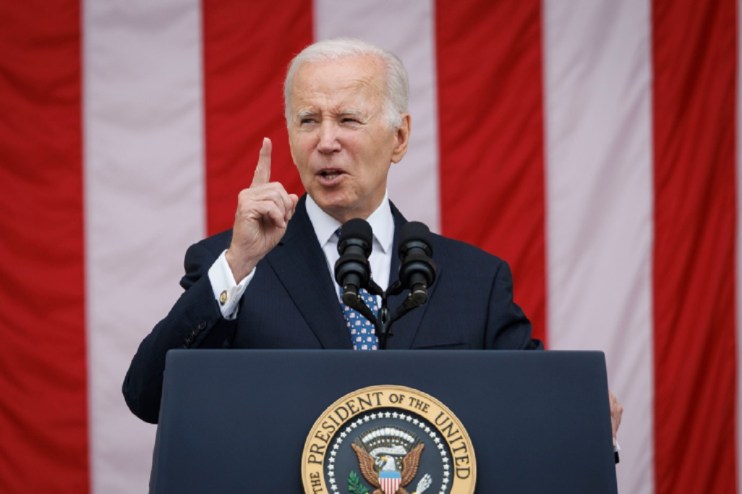Oil markets await fresh signals ahead of Biden’s visit to Israel

Oil prices have risen slightly on both major benchmarks with investors awaiting fresh signals amid sustained geopolitical uncertainty, centred on Israel and Gaza.
Brent Crude has ticked up 0.44 per cent to $90.04 per barrel in this morning’s session, with WTI Crude has climbed 0.32 per cent to $86.94 per barrel over the same period of trading.
This consolidates last week’s gains, when prices surged on fears the conflict could escalate, with Brent Crude posting a 7.5 per cent gain last week – the benchmark’s fastest five-day rally since February.
This comes ahead of US President Joe Biden’s trip to the Middle East this week, with the politician hoping to strike a balancing act between support for Israel in its war with Hamas, and containing a conflict that threatens to involve Iran and Lebanon.
His visit to Israel comes as the country prepares to escalate military operations in Gaza, where there are already growing concerns of a humanitarian crisis.
Meanwhile, Iran has pledged “preemptive action” from the “resistance front” of its allies which include the Hezbollah movement in Lebanon.
Ricardo Evangelista, senior analyst at Activtrades said: “Uncertainty still lingers over a potential spillover of the conflict in Israel in a way that could involve major oil producers in the region, in a dynamic that continues to create upside risk for prices.”
The US decision to impose sanctions on two oil tankers for allegedly violating the G7 price cap on Russian oil has also raised uncertainty, with investors pricing in a robust Western response to future breaches.
Carsten Fritstch, commodities analyst for Commerzbank, said: “This could deter potential customers such as India from buying Russian oil given that Urals – at just shy of $80 – is still trading well above the $60 price cap. If the US were then also to enforce the oil sanctions against Iran more strictly again, the oil market would tighten noticeably.”
However, Bjarne Schieldrop, chief analyst for commodities at SEB, is optimistic played down the prospect of surging prices being sustained from disruption to supplies in the Middle East.
“The fear is that the conflict might spiral out of control and eventually lead to real loss of supply with Iran being most at risk there. But such geopolitical risk premiums are usually short-lived unless actual supply disruptions occur,” he said.
There are also hopes that supply pressure could be eased with hopes the US will lift sanctions on US imports – with the country’s government and opposition set to resume long-suspended talks today.
This could lead to Washington easing sanctions, multiple sources told news agency Reuters.
Any potential relief to supplies comes in the context of swingeing cuts from OPEC and its allies, with over five million barrels per day slashed from global markets this winter.